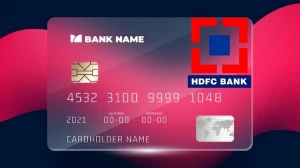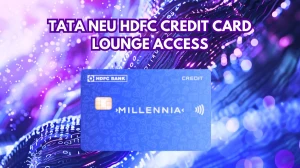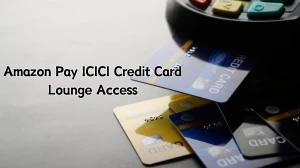
- Home »
- Credit Card »
- How Long Does a Credit Card Payment Take to Process?
How Long Does a Credit Card Payment Take to Process?
Credit card payments usually take one to two business days to process, with variations among issuers, ensuring timely crediting for payments made by the due date's cutoff time.
by Kowsalya
Updated Dec 08, 2023
On This Page
How Long Does a Credit Card Payment Take to Process?
Credit card payments typically take one to two business days to process, but precise processing times may vary by issuer. The Truth in Lending Act governs card payments, requiring issuers to send statements at least 21 days before the due date, with consistent due dates each month. Payments made by the due date's cutoff time are credited on the same business day; otherwise, they are credited the next business day.
Card issuers may have specific requirements for payments, and payments received promptly through recommended channels are credited accordingly. It's advisable to contact the credit card company if there's a delay in processing, especially if the payment was submitted on time with sufficient funds in the account.
What is the Minimum Payment on a Credit Card?
The minimum payment on a credit card is the lowest amount that cardholders need to pay each month to maintain good standing with the credit card issuer. While it's not mandatory to pay off the entire balance, it is advisable to do so to avoid accruing interest charges. The minimum payment is calculated based on the current balance and interest rate, and it can vary from month to month.
Making only the minimum payment can lead to increased interest accrual, higher credit utilization rates, and potential damage to the cardholder's credit score. It's recommended to pay off the full balance each month if possible to maintain financial health and avoid unnecessary interest costs.
How to Cancel a Credit Card Payment?
Canceling a credit card payment, whether it's an individual transaction or recurring payment, requires a specific process to ensure your financial well-being and avoid potential hassles. Below is a step-by-step guide on how to cancel a credit card payment effectively:
Identify the Payment
The first step in canceling a credit card payment is to identify the specific transaction or payment you want to cancel. Determine whether it's a one-time purchase or a recurring charge. Make a note of the transaction details, including the date, amount, and the merchant's name.
Contact the Merchant
For one-time purchases or payments, the most straightforward approach is to contact the merchant directly. Look for their customer service contact information, which is often available on their website or on the transaction receipt. Reach out to them by phone or email, explain the situation, and request the cancellation of the payment. Keep records of your communication with the merchant.
Check Merchant Policies
Before contacting the merchant, review their cancellation or refund policies. Some businesses may have strict policies regarding cancellations, and they might have specific timeframes within which you can request a cancellation. Understanding their policies will help you navigate the process more effectively.
Monitor Your Account
After requesting the cancellation with the merchant, closely monitor your credit card account to ensure that the payment is indeed canceled. Check your online statement or mobile app for any updates related to the transaction. Some payments may take a few business days to reflect changes.
Recurring Payments
If you're dealing with recurring payments, such as subscriptions or memberships, you'll need to follow a different process. Canceling these payments typically requires contacting the merchant as well, but you may also need to take additional steps through your credit card issuer.
Contact Your Credit Card Issuer
To cancel a recurring payment, get in touch with your credit card issuer. You can find their customer service number on the back of your credit card or on their website. Inform them of the recurring payment you want to cancel and provide all relevant details. They may guide you on how to complete the cancellation process and advise you on any necessary actions.
Consider Blocking or Reissuing Your Card
If you encounter difficulties in canceling a recurring payment or if the merchant is uncooperative, you may consider blocking the payment by requesting a new credit card number from your issuer. This prevents future charges from going through on the old card number. Be aware that you will need to update your payment information with any other legitimate services linked to the old card.
Document Everything
Throughout the cancellation process, keep thorough records of all communications, including timestamps, names of representatives you speak with, and any reference or ticket numbers provided. These records can be valuable if you need to dispute the charge or prove your cancellation request.
Review Your Statement
Finally, regularly review your credit card statements to ensure that the canceled payment does not reappear. If you notice any discrepancies or unexpected charges, contact your credit card issuer immediately to address the issue.
How to Accept a Credit Card Payment?
Accepting credit card payments is crucial for small businesses, offering several advantages such as improved cash flow, increased sales potential, and enhanced legitimacy in the eyes of customers. Here's a simplified guide on how to accept credit card payments,
Types of Businesses
- Virtually any business, including brick-and-mortar, online, small, large, sole proprietors, contractors, and mobile businesses, can accept credit cards.
Benefits
- Improved cash flow, faster payment processing, and reduced delays.
- Legitimization of your business.
- Potential boost in sales due to expanded payment options.
Process
- Decide when and how to accept credit card payments: online, in person, via a mobile card reader, or over the phone.
- Choose between merchant accounts (bank accounts for credit card payments) or payment service providers (companies facilitating credit card payments without a merchant account).
Setup
- Select a payment processing system based on your business needs and volume.
- Update point-of-sale software and hardware to accept credit card payments.
Accepting Online Payments
- Set up a payment gateway for online transactions.
- Choose a reputable e-commerce platform provider.
Safety Tips
- Use approved and well-known payment processors.
- Avoid storing customer credit card data.
- Train employees to handle credit card data and identify potential fraud.
- Verify shipping and billing addresses to reduce fraud.
Payment Processing Fees
- Credit card processing fees typically range from 1.5% to 3.5% of each transaction.
- Consider these fees in your operating costs.
Legal Aspects
- Companies can refuse credit card payments, but it may impact customer satisfaction.
- Credit card payments can be accepted without a merchant account, using third-party processors.
Considerations
- Be aware of state and federal regulations on credit card surcharges.
- Small businesses may find the benefits of accepting credit cards outweigh the associated costs.
How Long Does a Credit Card Payment Take to Process - FAQs
1. How long does it take for a credit card payment to process?
Credit card payments typically take one to two business days to process, varying by issuer.
2. What is the minimum payment on a credit card?
The minimum payment on a credit card is the lowest amount required to maintain good standing, but paying the full balance is advisable to avoid interest charges.
3. What governs credit card payments?
The Truth in Lending Act governs credit card payments, ensuring statements are sent at least 21 days before the due date.
4. How can I accept credit card payments for my business?
Accepting credit card payments for your business involves selecting a payment acceptance method, choosing a payment processing system, and acquiring the necessary software and hardware.
5. Why pay off the full balance each month?
Paying off the full balance is advisable to avoid increased interest, higher credit utilization, and potential credit score damage.




